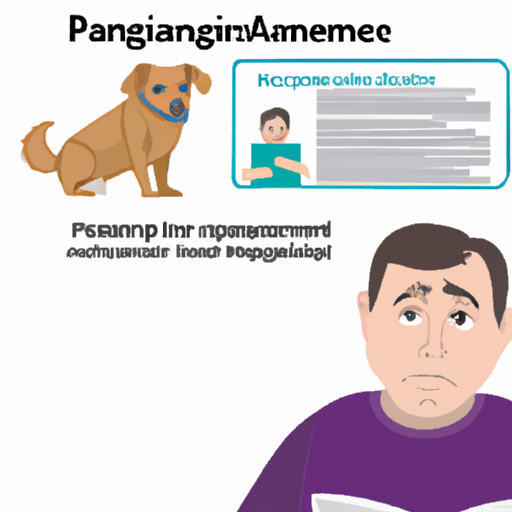As a caregiver, it’s only natural that you’d want the best for your furry companion. So let’s dive into understanding pancreatitis in dogs, so that you can be on the lookout for any signs or symptoms.
H2: Understanding Pancreatitis
First off, pancreatitis refers to inflammation of the pancreas. The pancreas is a vital organ that aids in the digestion of food and regulation of blood sugar levels. When it becomes inflamed, it can lead to a host of health issues for your pooch. It’s essential to catch these symptoms early to help your vet take quick and effective action.
H2: Common Symptoms of Pancreatitis in Dogs
Here are some common symptoms to look out for:
- Loss of appetite
- Vomiting
- Abdominal pain
- Diarrhea
- Lethargy
- Fever
Each of these symptoms might not necessarily mean your dog has pancreatitis, but if you notice a combination of symptoms, it’s best to consult your vet immediately.
H2: Factors Contributing to Pancreatitis
The exact cause of pancreatitis in dogs isn’t always clear, but several contributing factors are often present. These can include:
- High-fat diet
- Obesity
- Certain medications
- Metabolic disorders
- Trauma
Understanding these factors can help you prevent your beloved pet from developing pancreatitis.
H2: Diagnosis and Treatment of Pancreatitis
Your vet will likely perform a physical examination and may use diagnostic tests such as blood tests, ultrasounds, or X-rays to confirm a diagnosis.
The treatment for pancreatitis typically involves:
| Treatment Method | Description |
|---|---|
| Fasting | To rest the pancreas |
| Fluid Therapy | To prevent dehydration |
| Pain Management | To provide comfort |
| Dietary Changes | To prevent future episodes |
H2: How to Prevent Pancreatitis in Dogs
Prevention is always better than cure. Here are some steps you can take:
- Maintain a balanced diet for your dog
- Regular exercise to keep their weight in check
- Regular vet check-ups to catch any potential issues early
Remember, your dog relies on you for their wellbeing, so it’s up to you to help keep them healthy.
FAQ’s
Q: Can pancreatitis in dogs be cured?
A: With proper treatment and dietary changes, most dogs recover from pancreatitis.
Q: Is pancreatitis in dogs contagious?
A: No, pancreatitis is not contagious.
Q: What foods should a dog with pancreatitis avoid?
A: Dogs with pancreatitis should avoid fatty foods as they can exacerbate the condition.
Q: Can pancreatitis in dogs be prevented?
A: While you can’t entirely prevent pancreatitis, maintaining a healthy diet and regular exercise can reduce the risk.



